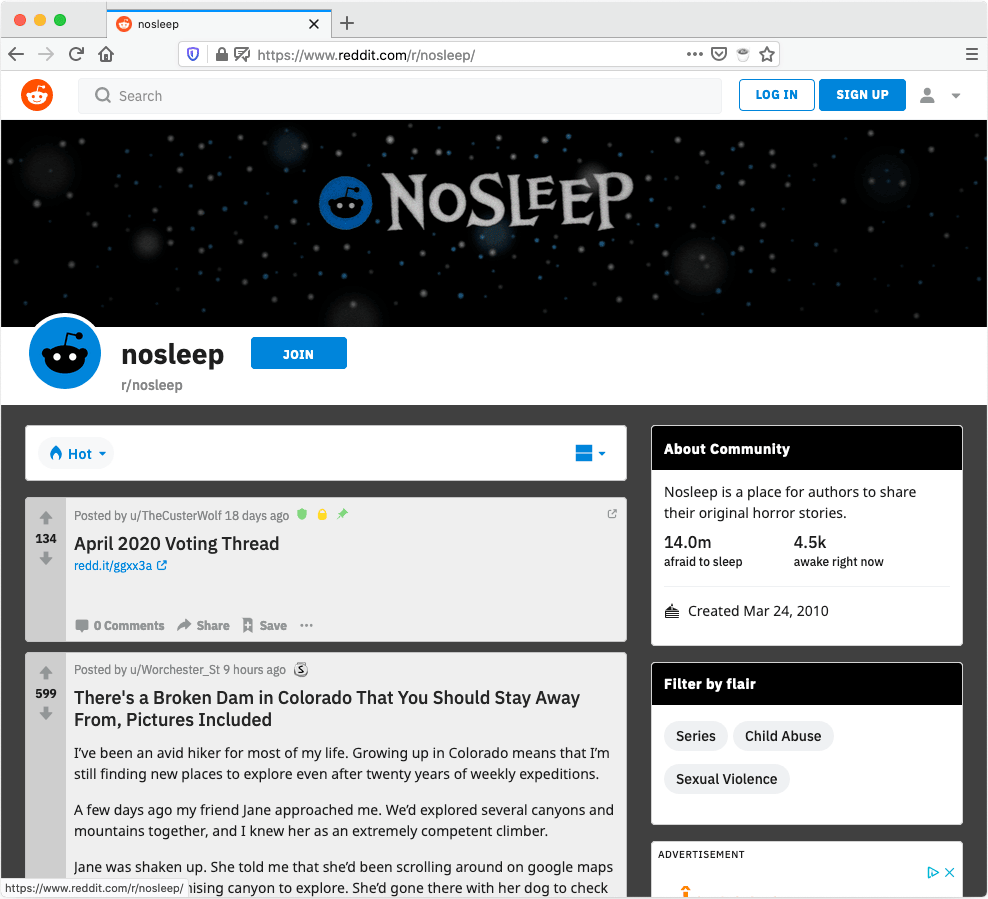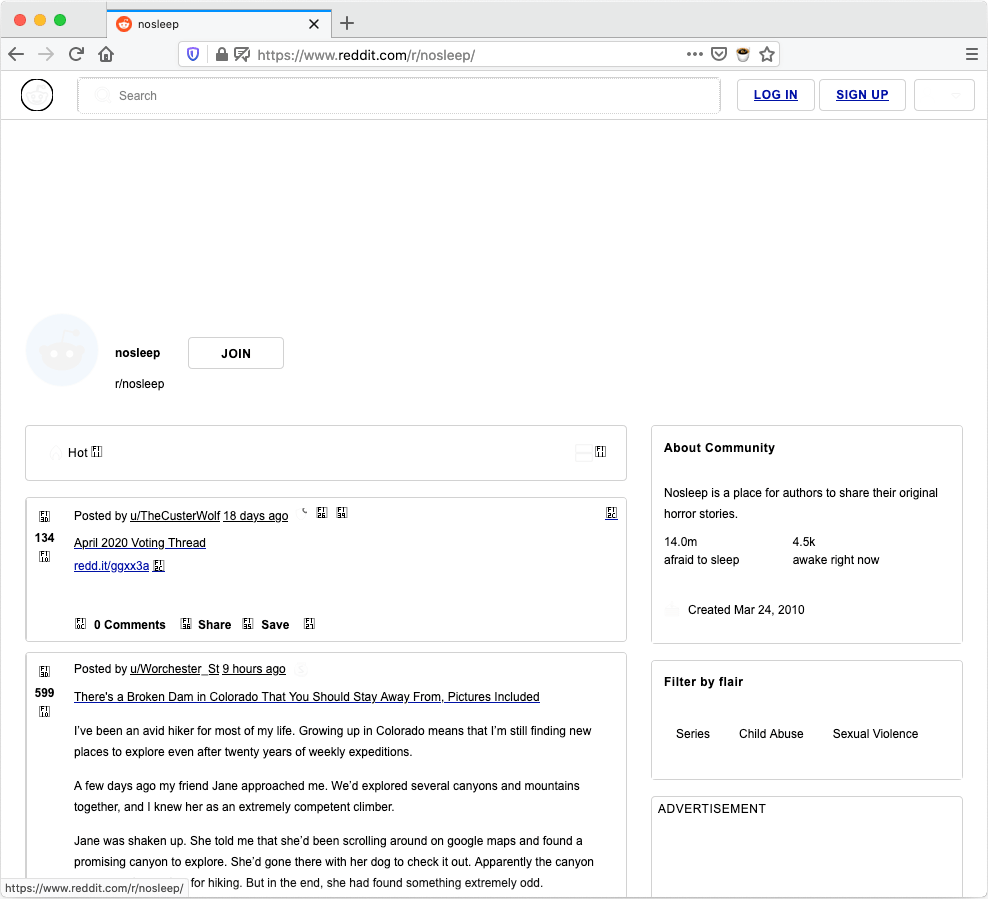How to Hide Browsing from Employers

It’s very easy to get distracted at work nowadays, what with any information, social interaction, and entertainment literally at our fingertips. So it’s only natural that most people take a quick five-minute break every once in a while to browse their favorite website.
There’s just one problem with that - how do you hide browsing from employers? The last thing you want is getting in trouble for responding to a message on Facebook.
Doing that can be tricky, but we’ll show you some simple tips in this article. So stick around if you’re tired of being bored at work.
Why Do Employers Monitor Your Browsing?
Why do you need to hide browsing from employers in the first place?
As far as we can tell, it’s because:
They’re Worried about Phishing/Malicious Sites
Businesses are really scared you might accidentally end up on a fake site with malware-infected attachments. And for good reason. If you do that, you don’t just infect your personal device - you also infect the whole company network, and potentially give a hacker access to valuable data.
Normally they use firewalls to automatically block your access to malicious domains. But fake sites pop up all the time, and they can slip through the blocklist undetected.
So your boss likely has a team of security experts keep an eye on connections to suspicious domains. If they notice any, they can flag them, and block the destination IP.
They’ll also know who accessed the site. Now that can be either good (they can offer them anti-phishing training) or bad (they fire him/her), but that’s beside the point in your employer’s eyes. All they want is to make sure the company isn’t put at risk by careless browsing.
They Think You’re Being Unproductive
Many employers automatically associate Internet browsing with “wasting time.” They don’t realize people don’t work non-stop for eight or seven hours - or even a whole hour. They only think of KPIs, and don’t realize that many people actually work constantly for 10-20 minutes, take a quick break, and do it all over again.
Businesses also likely base this view on studies that link online browsing with low productivity levels. Like this one, for example, that says 29% of employees spend two hours per week wasting time at their computers, while 21% waste up to five hours per week.
So your boss resorts to monitoring your Internet activity to make sure you’re not slacking off.
They’re Worried about High Bandwidth Usage
Companies don’t normally have unlimited bandwidth for their employees. And bandwidth costs aren’t cheap either. So employers want to make sure you spend 100 Mb per day working, not watching YouTube videos.
Monitoring your Internet browsing is obviously the best way to do that. They can easily see what website you connect to, when you do it, and how much data you exchange with it.
How Do Employers Monitor Your Browsing?
As far as we know, they can do the following things:
- Monitor your Internet traffic to see what sites you browse. To access the web, you go through the company network. Until you access an HTTPS website, your traffic isn’t encrypted, so the IT team can see your connection requests. They won’t know what you do on Facebook, sure, but they’ll know you did it.
- Tell their IT team or HR managers to check your computer after you leave. They might go through your browsing history or check if you installed unapproved apps.
- Have the IT team remove your computer’s hard drive and make a copy of it before your shift starts. When you leave, they can check the hard drive against the copy for suspicious differences.
- Use ethical hacking tools (like spyware and keyloggers) to record your activity. They could also use software that takes screenshots of your screen at random intervals (like every five or ten minutes).
IMPORTANT - The Difference Between Using a Work Computer vs. a Personal Device
Most of the more invasive tracking methods we mentioned are only possible on work computers. If you can bring your own personal device (like a laptop) into work, you only need to worry about firewalls and traffic surveillance. And we can offer you some simple tips to avoid that.
Unfortunately, if you use a work computer, we can’t really recommend following all the pointers we’ll be discussing next. You can end up in serious trouble, and none of those solutions will really work because:
- Your boss will have remote access to your device whenever they want.
- The IT team, your supervisor, or the HR manager can check your computer after you leave.
- Your employer could place tracking software on your device.
No matter how careful you are, your boss can catch you slacking off or using unblocking tools.
You could theoretically use software like TeamViewer to remotely access your home computer from your work computer to surf the web. But if the IT team uses keyloggers, they’ll get your TeamViewer login credentials. The last thing you want is them having access to your home computer.
So How Do I Hide My Internet Activity from My Employer?
Like we just said, you should only try these tips if you can use your own personal device at work. If you use them on a work computer, they won’t be very effective. In fact, it’s very likely your employer will catch you in the act.
Also, you should try using most of these tips together to increase your odds of being successful.
With that out of the way, this is how to hide browsing history from employers the right way according to our research:
Use a VPN
A VPN is an online service that hides your IP address and encrypts your traffic. When you use a VPN server, you get a new IP address since all your traffic is routed through it. That allows you to bypass workplace firewalls with no problem.
But the encryption part will be of real interest to you. Thanks to it, you’ll be able to hide browsing from employers. Basically, instead of your connection working like this:
Your Device → Workplace Network → Website
It will work like this:
Your Device → Workplace Network → VPN Server → Website
Any traffic that passes between your device and the server will be encrypted. Even though it goes through your employer’s network, they won’t be able to monitor it. Instead of seeing your connection requests, they’ll only see gibberish. So they won’t be able to monitor your online browsing anymore.
Keep in mind your employer can see you’re using a VPN, but only if they bother to check. Instead of the normal connection:
Source IP → Destination IP + Website Name
They’ll only see:
Source IP → Destination IP
The “Destination IP” in this case is the IP address of the VPN server. Since it doesn’t have any DNS resolution (website name) associated with it, your boss will likely suspect you’re using a VPN.
That’s only a problem if your company has a strict no-VPN policy, however. It’s best not to use one in that case, though you could just say you are using TeamViewer to remotely access your home computer to check some work files.
Looking for a reliable VPN service?
Here at SmartyDNS we offer high-speed VPN servers with military grade 256-bit AES encryption and highly secure VPN protocols (OpenVPN, SoftEther and IKEv2), and we we adhere to a strict no-log policy.
Our VPN servers act as proxy servers and we also offer Smart DNS service that allows you to unblock 300+ geo-restricted websites around the world.
We offer convenient VPN apps for Windows, Mac, iPhone / iPad, Android and Fire TV / Stick, and extensions for Chrome and Firefox browsers.
Special offer! Get SmartyDNS for $ 3.7 per month!
Yes, and we’ll also get your 30-day money-back guarantee.
Use TeamViewer
Since we just mentioned it, we should cover this tool as well. It’s a decent alternative to using a VPN. Just set it up on your home computer, and on the device you use at work.
Then, use it to remotely access your home computer, and surf the web. TeamViewer connections are encrypted too, so you should be able to hide browsing from employers.
Of course, network admins will still see a connection that looks like a VPN. If they happen to know what your home computer’s IP address is, they’ll realize what you’re doing.
Use Incognito Mode
This privacy mode won’t help you hide your traffic, but it can hide browsing from employers if they ask to use your device for something.
Normally, they wouldn’t do that. But then again, supervisors with a superiority complex who overstep their boundaries by pulling rank aren’t exactly uncommon either.
Even if they’re alright people, maybe they need to use your device to test something real quick. They might not intend to check your browsing, but they can’t help not noticing it either.
Fortunately, incognito mode really helps with that. It clears your browsing history and deletes cookies when you close a tab or the browser.
So no more scrambling to clear your cookies and history when your boss takes you by surprise with these kinds of requests. Just close the browser, and your online activities remain a secret.
Use Shortcuts
Keyboard shortcuts, basically. They’re extremely useful if your supervisors have a habit of wandering around the office or coming up behind you unannounced.
When they do that, they can catch you off-guard, and they’ll have enough time to see you browsing Reddit or looking at flights in the time it takes you to close the tab or browser.
So shortcuts are your best friend in that scenario. They help you instantly minimize or close a tab your employer shouldn’t see. Here are the ones you should memorize:
- For Windows - Ctrl + W (closes the tab), Win + D (minimizes open windows), and Alt + Tab (switches to a different app).
- For macOS - Cmd + W (close current tab), Cmd + F3 (minimize open windows), and Cmd + Tab (switch between apps).
Try “Disguising” the Website
If shortcuts sound like too much of a bother, or you’re worried you won’t use them in time, try disguising the website you’re using. By that, we mean make it look more work-related.
For example, use Decreased Productivity. It’s an extension that can remove bright colors and images from any website you want to make it look less “distracting” to people who glance at your screen.
It’s pretty effective in our opinion. Here’s how Reddit Nosleep looks like without it:

And with it enabled:

Doesn’t look too good, but it’s less likely to attract someone’s attention.
You can get Decreased Productivity on Chrome and Firefox. You can also get it on Opera if you use Install Chrome Extensions.
Here are other tools you can use to pass the time at work without your browsing standing out:
- MSOutlookKit - A portal that reskins Reddit, making it look like an email client. Not very pretty to look at, but gets the job done.
- CivClicker - A much simpler version of Civilization. You get to build an imaginary empire just with clicks, and it even has a work-safe mode that toggles off graphics to make the site look blander.
- Google Pac-Man - You can play the classic as a Google doodle. If anyone notices, you can hide browsing from employers by just saying you wanted to run a Google search and clicked the wrong button or link.
- Universal Paperclips - A click-based game that doesn’t look like much at all, but is surprisingly addictive and fun.
Use Your Phone (With Mobile Data!)
You don’t need to worry about people seeing your screen that way. Of course, you still have to make sure you’re a little inconspicuous so that your boss doesn’t notice you’re spending more time on your phone than your computer.
Just make sure to use mobile data, not the company network. Otherwise, the IT team can see your traffic. You can use a VPN to solve that, but they’ll know you’re using one. Only do that if you don’t have enough mobile data.
Can My Employer See What Websites I Visit on Home WiFi?
That would normally be a no. Your home network has nothing to do with the company network. So you don’t need to worry about your boss monitoring your Internet browsing when you’re in bed late at night.
That being said, if you take a work laptop home, your employer will eventually be able to see what sites you visited on it on your home network. They just need to check your browsing history when you return the device. Sure, you can delete it, but what if they use spyware or remote access software?
It’s better to just use your home computer for browsing the web, and use the company device for work only.
Besides that, your employer can see the sites you visit on your home computer if you work remotely because:
- You might have to use a corporate VPN to connect to the company network. Unlike commercial VPNs, they don’t offer end-to-end encryption. So your employer can see all your connection requests on their end.
- They might ask you to use software like Time Doctor. That tool can offer your boss a ton of data - screenshots, webcam shots, time spent per project, and time spent per app. They’ll obviously have no problem knowing what sites you browsed on your home network during work hours.
Know Other Ways to Hide Browsing from Employers?
These are the most efficient ones we heard of. We also saw tips like getting a privacy screen, but it’s pretty hard to justify that to your employer.
Maybe if you work in accounting or in a department focused on security and privacy. But if you’re in customer support or sales, it’s harder to convince your boss to let you use one. Plus it’ll make you stand out.
So if you know other smart ways to hide browsing from employers, or any other relevant information we didn’t cover in the article, let us know in the comments.



